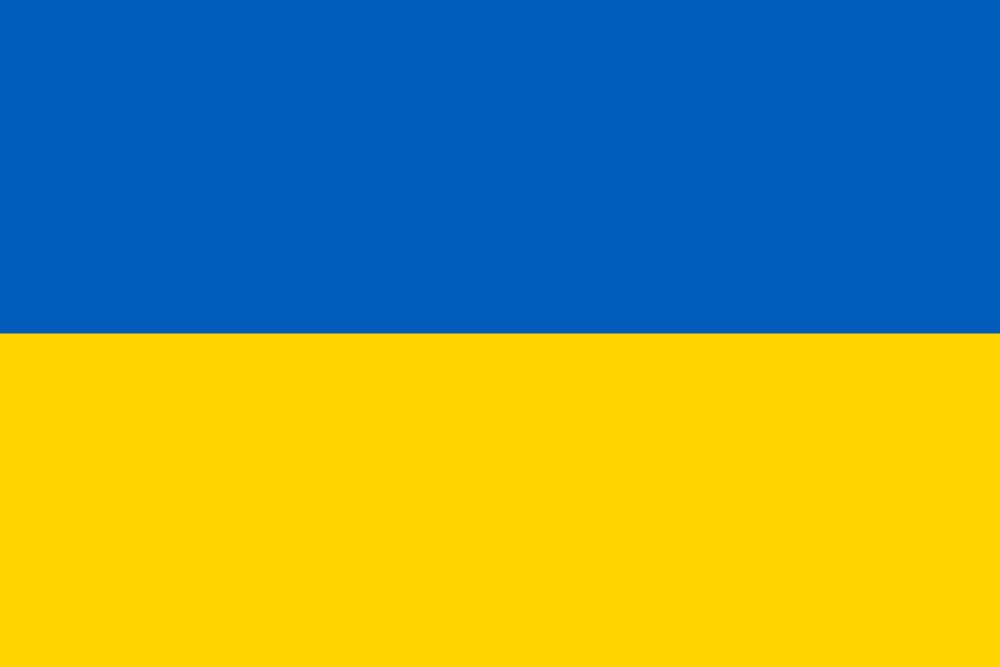Conflict Developments
The offensive of the army of the Russian Federation (hereinafter Russia) has continued in the eastern and southern regions of Ukraine, with the Zaporizhzhia region seeing intense levels of fighting. Other oblasts seeing significant levels of shelling and hostilities include Donetsk, Luhansk, and Mykolayiv oblasts. Despite Russia’s air superiority and manpower, the Russian army has not made the advances it has anticipated.
The General Staff of the Armed Forces of Ukraine has reported on the risk of airstrikes launched from the territory of Belarus.
Demining efforts continue across Ukraine in territories liberated from Russian control, including Kramatorsk and several cities in the Donetsk oblast. An example of the scale of mine contamination was presented by an air bomb found near a military hospital in the town of Irpin.
Humanitarian Dimensions
Residents of cities under Russian occupation continue to be subject to hostilities with reports of abuse targeting individuals representing both pro-Ukrainian and pro-Russian sentiments. As an example, a pro- Russian activist and blogger, Valeriy Kuleshov, was reportedly killed in Kherson on Wednesday 20.
Armed resistance by Ukrainian individuals in the territories under Russian control is increasingly taking the shape of semi-organized guerrilla warfare.
Access to water and food remains critically low in villages in the steppe zone of the Kherson oblast.
Russian forces have continued their efforts to prepare for “independence referendums” in the Kherson and Mykolayiv oblasts. Preparations for the accession of settlements in the Zaporizhzhia oblast to the so- called “Donetsk People’s Republic”: are also being made.
Cases of looting and violence committed by Russian troops targeting residents in the occupied territories of the Kharkiv oblast are being increasingly reported.
According to the Permanent Representative of Ukraine to the UN, Sergiy Kyslytsya, Russian forces have continued to forcefully deport Ukrainian citizens to Russian territories. According to reports, more than 500 000 Ukrainians, out of whom 121 000 children, have already been deported. Russian officials have been noted to issue Russian passports to these individuals and have imposed prohibitions banning the deported individuals from leaving their assigned regions for a period of two years.
One humanitarian corridor was approved on Wednesday, allowing civilians to flee from the area of the Azovstal metallurgical plant in Mariupol. However, planned evacuations were cancelled due to Russian hostilities.
Russian disinformation is being actively spread in the districts controlled by Russian troops in Mariupol. Russian forces are, for example, promoting a rally for the “Immortal Regiment” to be held on the Russian Victory Day celebrated on May 9.
Towns including Rubizhne, Popasna, Novodruzhesk, and Avdiivka in the Luhansk and Donetsk oblasts have been cut off from electricity due to ongoing shelling with little hope of restoring connections to the power grid before hostilities cease.
Access to water has been restored in Bucha and Irpin.
Russian official sources have voiced their approval for the atrocities that took place in Bucha, signalling their support for similar acts in other locations.
Information Warfare Dimensions
Russian officials continue to disseminate anti-European narratives and downplay the impacts of the sanctions imposed by the European Union (EU) on Russia. Russian media continues to refer to the sanctions as “illegal” and the Speaker of the State Duma, Vyacheslav Volodin, has made a statement underscoring that European countries will have to compensate for the damage the sanctions have inflicted on the Russian economy. In Russian public discourse, officials and politicians continue to emphasise that Russia is a country of opportunities.
The Deputy Chairman of the Russian Security Council, Dmitry Medvedev, has denounced countries providing Ukraine with weapons and aid.
Russian President Vladimir Putin has reiterated that the main goal of the special operation is to help the citizens of the so-called Donetsk and Luhansk People’s Republics. In a statement made on Wednesday, the president underscored that Russia is seeking peace in Donbas, yet avoided calling the situation a “war”. President Putin laid emphasis on the economic opportunities presented by Russia as well as the importance of patriotism and traditional family values.
Russian officials have refrained from sharing information regarding ongoing negotiations, despite a statement made claiming that negotiations are being conducted. The Russian Press Secretary, Dmitry Peskov, made a statement saying that Russia has handed Ukraine a draft document featuring clear demands from Russia regarding the conditions of a negotiated settlement. According to Mr Peskov, the Kremlin is waiting to hear back from their Ukrainian counterparts. Russian sources have underlined that they will not take responsibility for the outcome of negotiations.
Russian sources have disseminated messages regarding Russian military victories, the successful destruction of Ukrainian military objects, and the capturing of 3000 Ukrainian combatants in Mariupol. Information regarding the destruction of civilian infrastructure by Russian forces has not been mentioned.
President Putin is reported to plan visits to Russian hospitals treating soldiers wounded in Ukraine.
Russian officials have repeated the claim that Russian troops engaged in the special military operation in Ukraine are being supported by volunteer squads, who are said to have been involved in the fighting in Ukraine since 2014. According to vice-governor of Kuban, Alexander Vlasov, these squads include 1500 Cossacks from across Russia, who will soon be accompanied by 400 more from Kuban.
The Russian Ministry of Defence has imposed restrictions on information regarding Russian soldiers killed in Ukraine. The financial benefits provided to the families of fallen soldiers will be handed out through conscription offices, rendering information regarding Russian causalities even more confidential and untransparent.
Russian officials continue to persecute individuals demonstrating against the war.
Russian officials have refused to comment on the case of Viktor Medvedchuk and a potential exchange of prisoners of war related to his detention.
This Ukraine Situation Report is prepared in the framework of the project “Building Resilience in Conflict Through Dialogue” funded by the European Union


